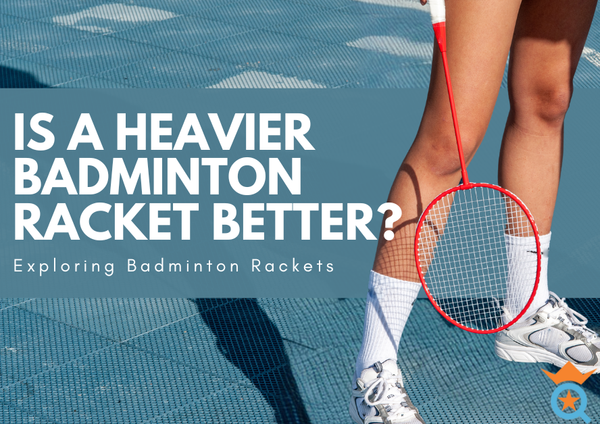Are you a new pickleball player looking to improve your skills? You're not alone! Pickleball is a popular sport that's gaining momentum across the globe, and it's easy to see why.
It's a fun and engaging game that combines the best aspects of tennis, badminton, and ping-pong. But before you start focusing on advanced techniques, it's crucial to learn the game's basics.
In this article, we'll provide you with a helpful guide on how to improve your pickleball game. We'll cover everything from serving and returning to placement and strategy. So, let's get started and take your pickleball skills to the next level!

Basic Rules and Etiquettes of the Game
Pickleball is a sport that's easy to learn, but mastering it requires more than just skill. It also requires a good understanding of the rules and etiquette that govern the game.
Here are some basic rules and etiquettes that every player should know:
Rules:
- Scoring: The game is played to 11 points, and the winning team must win by two points.
- Serving: The serve must be hit underhand and cross-court, and it must land in the opponent's service court.
- Double Bounce Rule: The ball must bounce once on each side of the net before it can be volleyed (hit in the air) by either team.
- Non-Volley Zone: Players cannot volley the ball while standing inside the non-volley zone (the area within 7 feet of the net).
- Faults: Faults include hitting the ball out of bounds, not clearing the net, stepping into the non-volley zone while volleying, and not serving the ball correctly.
Etiquettes:
- Respect your opponent: Shake hands before and after the game, and avoid any trash-talking or unsportsmanlike conduct.
- Move quickly: Quickly retrieve the ball and return to the position to keep the game flowing.
- Wait for the server: Wait until the server calls the score before serving, and avoid rushing the server.
- Call the score clearly: Clearly state the score before every service to avoid confusion.
- Keep quiet: Avoid making loud noises or distracting your opponents during the game.
Knowing these rules and etiquette can help improve your game. By following the rules, you'll avoid giving points away to your opponent and ensure that the game is played fairly.
And by following pickleball etiquette, you'll create a positive and respectful environment that allows everyone to enjoy the game.
So, the next time you step onto the pickleball court, remember to play pickleball by the rules and follow the etiquette.

Importance of Positioning and Footwork
In pickleball, proper positioning and footwork are essential to playing pickleball effectively. Good positioning means being in the right place on the court to hit the ball, while proper footwork allows you to get to the ball quickly and with good balance.
These skills are especially important when playing the third shot, which can make or break a rally. By having good positioning and footwork, you can better execute both power and soft shots, reducing unforced errors and helping you develop a solid pickleball strategy.
Whether you're a beginner or an experienced player, focusing on improving your positioning and footwork can help take your game to the next level.
Techniques for Better Shot-Making in Pickleball
Pickleball is a game of finesse and skill, and mastering different shot types can give players an edge on the court.
Here are some shot types to keep in mind:

- Dinks - short shots that land in the non-volley zone, used to create confusion and set up other shots.
- Lobs - high, arching shots that force opponents to move back and give the player time to recover.
- Drives - fast, hard shots that can be used to keep opponents on their toes and create openings.
Improving shot accuracy and consistency is key to success in pickleball. Here are some tips:
- Practice your shots consistently to develop muscle memory and control.
- Focus on your grip and aim for a loose, relaxed grip on your paddle.
- Use your body and feet to position yourself for the shot, and practice your footwork to stay balanced and mobile.
- Watch your opponent's paddle to anticipate the shot and be ready to react quickly.
Finally, developing a varied shot repertoire can keep opponents guessing and help players stay ahead. Mixing up dinks, lobs, and drives can create confusion and force errors from the opposition. So, try out different shots in practice and see what works best for you.
With these techniques for better shot-making, beginner pickleball players can develop their skills and take their game to the next level.
Pickleball Tips for New Players
If you're a pickleball beginner it's important to not only learn the game's basics and techniques but also how to practice and evaluate your game effectively.
Here are some tips to help you improve your skills and track your progress over time:
Practice with a purpose: Instead of just hitting the ball around, focus on specific skills or shots you want to improve. This could include practicing your serves, working on your footwork, or hitting cross-court shots.
Evaluate your game: Take note of your strengths and weaknesses during games and practice sessions. Are you consistently missing a particular shot? Do you struggle with your backhand? Identifying these areas can help you create a more targeted practice routine.
Develop a practice routine: Create a plan for your practice sessions that includes specific goals and drills. For example, you could spend 10 minutes practicing serves, 15 minutes on footwork, and 10 minutes hitting cross-court shots.
Track your progress: Keep a record of your practice sessions and games, noting areas of improvement and any challenges you faced. This can help you stay motivated and track your progress over time.

Popularity of the Game
Takeaways
Mastering the basics of pickleball is crucial to becoming a successful player. We have discussed the importance of learning the game's rules and etiquettes, positioning and footwork, shot-making techniques, and tips for practicing and evaluating one's game.
As a beginner pickleball player, it's important to understand that progress takes time and effort, but with consistent practice and dedication, anyone can improve their skills. Remember to have fun and enjoy the game, whether you prefer a power game or a soft game.
Keep these top pickleball tips in mind, and you'll be well on your way to becoming an experienced player.








